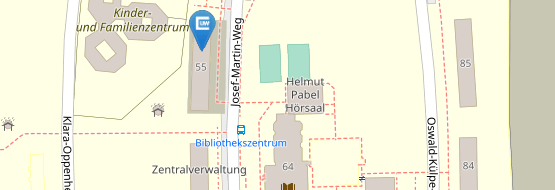Feedback der Studierenden
"Ich empfand den Clivex-Austausch als große Bereicherung für meine persönliche Weiterentwicklung und will die Erkenntnisse in kommende Gespräche und Projekte im Bereich der Planetaren und Globalen Gesundheit einfließen lassen." (Female, Germany, Student)
"I found the content of the facilitator training incredibly engaging. Additionally, I appreciated the structure of the training, which initially focused heavily on theory and progressively became more practical over the following weeks. The trainers were very supportive and helped us reach our full potential as facilitators. What I enjoyed the most was the international context—the weekly interactions with people living outside Europe. This allowed me to learn a lot about their lives in different societies compared to Germany and challenged me to reconsider some of my own assumptions. I believe this training is suitable for professionals from all fields. The skills taught in the program are valuable in various areas where problem-solving and conflict resolution are essential, and they are particularly beneficial for working in a multicultural context." (Female, Germany, Student)
“It's a life-changing opportunity, the skills are not only beneficial in my career, but also for my personal life, it improves the way I communicate with others.” (Female, Palestinian, Student)
“The Soliya training gave me the opportunity to discover the magic of virtual exchanges, in which people from all over the world, who don't know each-others, can get such a deep contact and exchange. Furthermore, I think that some of the competences learned can be useful in many other settings: education, management, conflict resolution, etc. and as usch, could be an important path for many professionals working in these fields.” (Female, Italian, Student)
“I learned that we are different and I must respect and accept others, avoiding assumptions, perceptions, and stereotypes. I have become more open-minded with others. Professionally, I learned how to use critical thinking to write articles for example, or do interviews with people as I'm a journalist.” (Female, Tunisian, Journalist)
“It is easier for me when I enter a new group (at university or when I go to a Youth Exchange for example) to speak with people and to form more connections knowing how group dynamics works. It is also easier for me when I am in different projects to facilitate or share different topics because I am more comfortable after gaining more skills.” (Female, Romanian, Student)
“The skills I have learned have benefited me outside of the role of virtual exchange facilitator. As a student and mother, I use these skills to get to the root of issues and reasons why people think the way they do and want what they want.” (Female, American, Student)
“I am currently a social project coordinator with an international organisation in my country. I work in an international environment and manage several meetings per week. Being attentive to the group’s dynamics and managing conflicts are the skills that helped me the most in my professional life. It saved me clear up many misunderstandings and even prevented conflicts before starting. Being active in social work, I'd definitely resolve to what I learned in the training very often.” (Female, Moroccan, NGO staff)
“I really loved the synchronous training sessions! I was able to learn so much through the practice sessions and through gaining experience with facilitation first-hand, which made me a lot more comfortable with the process. I also really loved engaging with all of the other participants in the training and the facilitators - I learned so much from all of them and really thought it was a great experience to be able to connect with others who are interested in intercultural dialogue." (Female, Canadian, Student)
"Between my role as an instructor and a translator, the tools I have acquired in the training will surely help in managing my lectures and allowing my students to interact and engage in dialogue, openly and honestly. Knowing how to facilitate can also guide me to create a safe space for my students. As a translator, it is important to always be aware of the (otherness), to recognize and not ignore. On a personal note, some of these skills can be applicable in day-to-day interactions to avoid miscommunication and nurture healthy relationships in addressing conflict." (Female, Palestinian, Instructor and Translator)
“The course was actually phenomenal in many ways. The flexibility of the course allowed me to learn at my own pace and on my own schedule. It provided us the opportunity to engage in interactive activities and discussions with our peers and instructors. Moreover, it provided access to a variety of multimedia resources such as videos, podcasts, and readings.” (Female, Palestinian, Student)
“I think that what makes the training a perfect opportunity to anyone is first of all the immense support from all the trainers and Soliya team, secondly having a tech support ready to help at anytime possible and also the quality of the content given either in Brightspace or in the session and overall it was a perfect experience” (Male, Moroccan, Student)
“Whether I will be a facilitator or not, whether I'll work in intercultural settings, the skills that I've acquired and the new mindset I have experienced, will be part of my life forever. Also, the safe-space that has been created since the very first session, the training team that was always supportive, the trainer that was always available and super prepared, the high-quality materials on canvas.” (Female, Italian, Student)


